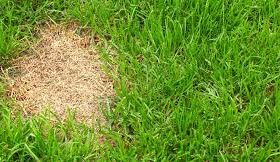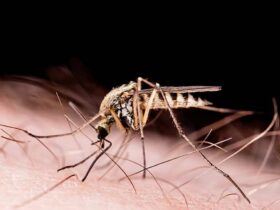If you live in Kansas City, you’ve probably noticed that mosquitoes seem to thrive here during the summer months. Backyard barbecues, evening walks, and afternoons on the patio often come with the constant swatting and buzzing of these persistent pests. But have you ever wondered why mosquitoes are such a problem during Kansas City summers — and more importantly, what you can do to protect yourself and your home?
In this post, we’ll break down the factors that contribute to heavy mosquito activity in the Kansas City area and share practical steps for prevention.
Kansas City’s Climate: A Mosquito Paradise
Kansas City’s summer climate creates the perfect storm for mosquito breeding. The region experiences:
- Warm temperatures from late spring through early fall
- High humidity throughout the summer
- Frequent rainfall, often followed by sunny periods
Mosquitoes thrive in temperatures above 70°F and need standing water to reproduce. Kansas City’s typical summer weather offers both, which means mosquito populations can grow quickly—especially after rainstorms when water collects in yards, gutters, and containers.
Standing Water: The Real Culprit
One of the primary reasons mosquitoes are so active in Kansas City is the abundance of standing water during the warmer months. Even small amounts—like the water in a flowerpot saucer or a clogged gutter—can become mosquito breeding grounds.
Female mosquitoes lay their eggs in stagnant water. Within days, larvae hatch and mature into biting adults. If that water isn’t emptied or treated, mosquitoes can quickly multiply and stick around for weeks.
Common mosquito breeding sites around Kansas City homes include:
- Birdbaths
- Kiddie pools
- Rain barrels
- Clogged gutters and downspouts
- Plant saucers
- Tarps and covers that collect water
- Low-lying areas of the yard that retain rainwater
Mosquito Species in Kansas City
Kansas City is home to several mosquito species, but the most problematic are:
- Culex mosquitoes – These are active during dusk and are known carriers of West Nile virus.
- Aedes mosquitoes – These are aggressive daytime biters and can carry diseases like Zika and dengue in some regions (though rare in the Midwest).
While the risk of disease in Kansas City is relatively low compared to tropical areas, it’s not nonexistent. Mosquitoes can also cause allergic reactions, itching, and discomfort that affect your quality of life throughout the summer.
Why Mosquitoes Seem Worse Some Summers
Not every Kansas City summer is the same when it comes to mosquito activity. Some years are noticeably worse than others, and that usually depends on:
- Rainfall – More rain means more breeding grounds.
- Temperature – Warmer temperatures speed up mosquito development.
- Wind conditions – Calm, humid evenings are ideal for mosquito activity.
- Community control efforts – When fewer people are managing standing water, neighborhood-wide mosquito issues become more common.
How to Protect Your Home and Yard
Managing mosquito populations around your home starts with prevention. Here’s what Kansas City homeowners can do:
- Eliminate Standing Water
Walk your property weekly to remove or refresh standing water. Dump water from buckets, toys, birdbaths, and other containers. - Maintain Gutters and Drains
Clogged gutters can hold water and become mosquito havens. Clean them regularly, especially after heavy rains. - Use Mosquito-Repelling Landscaping
Plant mosquito-repelling herbs like citronella, lavender, and basil around patios and porches. Trim overgrown grass and bushes where mosquitoes like to rest. - Install Outdoor Fans
Mosquitoes are weak fliers. A fan on your deck or patio can make it much harder for them to land and bite. - Apply Mosquito Treatments
Yard sprays and mosquito barrier treatments applied by professionals can drastically reduce mosquito populations around your home. - Protect Yourself and Your Family
Use EPA-approved insect repellents containing DEET, picaridin, or oil of lemon eucalyptus. Wear light-colored, long-sleeved clothing if spending time outdoors during peak mosquito hours (dawn and dusk).
When to Call a Professional
If your mosquito problem persists despite your best efforts, it may be time to contact a pest control service that specializes in mosquito treatment. Professionals can identify hidden breeding areas, apply targeted treatments, and help set up a seasonal plan to manage mosquito activity all summer long.
Professional mosquito control not only improves your outdoor experience, it also helps protect your health and reduces the chance of mosquitoes breeding on your property and spreading to your neighbors.
Enjoy a Bite-Free Summer in Kansas City
Kansas City summers should be spent enjoying cookouts, gardening, and evenings outdoors—not worrying about mosquito bites. With a little prevention and the right help, you can dramatically reduce mosquito activity and reclaim your yard.
If mosquitoes are making your summer miserable, don’t wait until it gets worse. Take action now to control mosquito breeding and protect your home from these unwanted summer pests. We recommend kansas city pest control.











